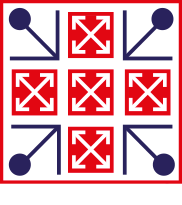SUPPORTING YOUR CHILD - WHAT HAPPENS AT SCHOOL?
We have prepared a series of short videos on how parents and guardians can support pupils, there will be videos for each year group.
Year 9
/i/video/2022SupportingYear9.mp4
Year 11
/i/video/2022SupportingYear11.mp4
Supporting your Child's Literacy and Numeracy
The National Curriculum
The word ‘curriculum’ refers to the subjects your child will study at school. The National Curriculum was developed to make sure all pupils have a balanced education. It contains all of the subjects to be covered and details what topics should be taught in schools. It also shows the standards or levels expected by pupils at age 7, 11 and 14.
All pupils aged 5–16 studying in state schools must follow the National Curriculum.
It currently consists of the following:
Core subjects – English, Mathematics and Science
Foundation subjects – Welsh, Design and Technology (DT), Information and Communication Technology (ICT), History, Geography, Art and Design, Music, Physical Education (PE), Modern Foreign Languages , Religious Education and Personal and Social Education (PSE).
Key StagesThe National Curriculm divides subjects that are taught in age groups called key stages. At every Key Stage pupils will study the national curriculum.
|
Early Years Foundation stage |
Pre school and end of reception year |
Age 3-5 years |
|
Key Stage 1 |
Year 1 & Year 2 |
Age 5-7 |
|
Key Stage 2 |
Years 3 - Year 6 |
Age 7-11 |
|
Key Stage 3 |
Year 7 - Year 9 |
Age 11-14 |
|
Key Stage 4 |
Year 10 & Year 11 |
Age 14 - 16 |
Most children are expected to work between levels 3 to 7 by the end of year 9. Children are expected to be working to at least level 5 at age 14.
Support
If children are working a long way above or below the expected level, the school must provide extra support. Your child’s teachers will be able to let you know how your child is doing and will be able to offer support and advice around any questions or worries that you may have.
Talk to your child about where they think they are in their Key Stage attainment. See what their teacher has suggested for the next step.
Making Contact
There are several ways you can contact the school regarding your child’s progress; by contacting the Learning and Wellbeing Desk, writing in your child's homework diary, attending parents evenings or contacting the Leaders of Key Stage.
School Website Directory
Academic
http://www.bbc.co.uk/schools/parents/
http://familylives.org.uk/advice/secondary/
Funding Support
School Uniform Grants - Information for Parents and Carers
Free School Meals Guidance
http://wales.gov.uk/topics/educationandskills/schoolshome/foodanddrink/freeschoolmeals/?lang=en
Free School Meals Application
Vale Family Information Services
www.valeofglamorgan.gov.uk/fis
Social and Emotional Support
Special Educational Needs
Anti-bullying
http://What’s On for children in the Vale with disabilities and additional needs.aspx

 Llantwit Major School
Llantwit Major School 





